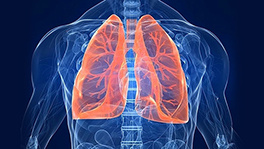 Views:114
Views:114 2024-09-20
2024-09-20 Share
Share
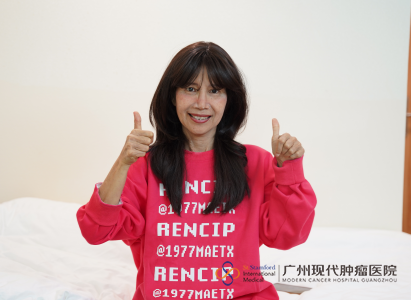
- Nowiti Sagala Indonesia
- Diseases:Ovarian cancer
- Treatment programs:Interventional Therapy
I am Nowiti Sagala, 57 years old. Since my diagnosis in 2007, I have accumulated several "souvenirs," including a 10cm surgical scar on my abdomen and an 8cm surgical scar on my armpit. Dealing with cancer, surgery, radiotherapy, and chemotherapy, from breast cancer to BCAR1 mutation, almost broke me. Fortunately, minimally invasive interventional treatment not only saved me from the ordeal of traditional treatment but also completely removed all the tumors in my body!
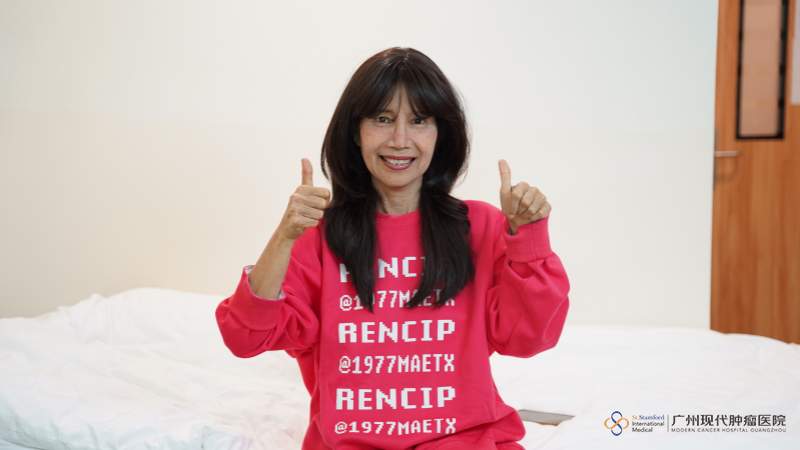
I was in good condition while undergoing minimally invasive interventional treatment
During the prolonged and repeated battle against cancer, I was nearly defeated by traditional treatments
The nightmare started in 2007. At that time, I underwent breast-conserving surgery and an axillary lymph node dissection at a local hospital. I underwent 6 rounds of chemotherapy and 33 rounds of radiotherapy after surgery, and it was not over yet. In 2019, I went to the local hospital for a check-up due to abnormal urination, and the result showed ovarian cancer. At that time, I followed the doctor's advice and underwent a total hysterectomy and bilateral ovarian resection, but multiple metastases occurred after the operation. So, I had another 6 rounds of chemotherapy. Surgery, radiotherapy, and chemotherapy felt like torture repeatedly, leaving me feeling miserable. Fortunately, I have been checking regularly from 2019 to 2023, and the results show everything is normal.
In August 2023, the test revealed an elevated tumor marker (CA125 251.81U/ml), but the CT examination results showed no signs of tumor recurrence. I realized something was wrong at the time, but I still didn't take any treatment measures. Until September 2023, the CT examination showed a left pelvic mass (approximately 3 x 1.7 cm in size) and local recurrence. The doctor calmly said to me, "You need to go ahead with chemotherapy!" At that time, I kept pondering: "Can I still endure chemotherapy?" I can stick with the treatment, but it was by no means the surgery, chemo, and radiation that were going to break me.
Minimally invasive interventional treatment avoids the risks associated with resection, as well as the side effects of radiotherapy and chemotherapy
Not long after, a friend recommended a hospital in China to me. She once suffered from tongue cancer and returned to a healthy life after minimally invasive interventional treatment. After learning about the new anti-cancer technology that eliminates the need for surgery, I feel like I have found hope. Finally, I no longer have to undergo surgery or endure the pain of radiotherapy and chemotherapy! I immediately contacted the Medan International Service Center and conducted a remote consultation with multidisciplinary experts. Multidisciplinary experts informed me that minimally invasive treatment can substitute traditional resection surgery, radiotherapy, and chemotherapy. "The drug concentration is higher, making it more precise, with a lower recurrence rate, less painful, and more suitable for my condition."
On September 23, 2023, I came to St. Stamford Modern Cancer Hospital Guangzhou. The check-up results showed a significant increase in the tumor marker (CA125 2814.90 u/ml). The diagnosis result was ovarian cancer recurrence after surgery, with a tumor size of about 3cm, accompanied by liver metastasis. After discussions with a multidisciplinary team of experts, a minimally invasive interventional treatment plan was finally formulated for me.
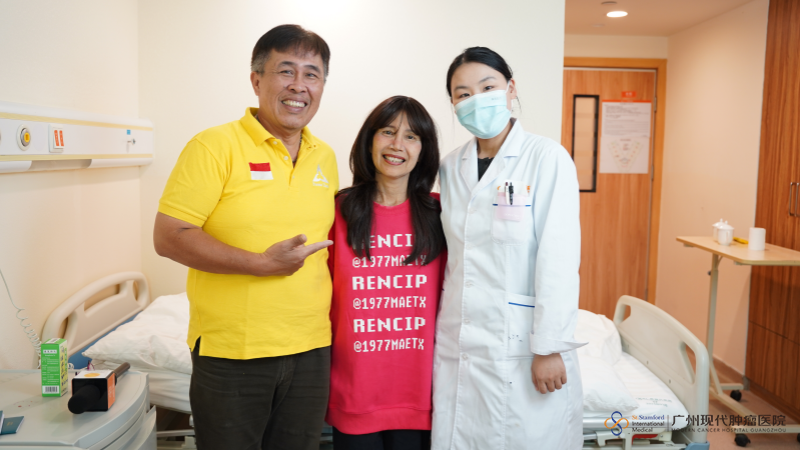
Minimally invasive interventional treatment is highly precise and effective
When I received minimally invasive interventional treatment for the first time, anti-tumor drugs were infused into the tumor through extremely small tubes guided by imaging technologies. Due to the local anesthesia, I could see the tumor site on the image monitor. I felt a sensation similar to an injection, without intense pain, and the treatment was completed within 30 minutes. Compared with resection surgery, radiotherapy, and chemotherapy, this treatment significantly alleviated my burden and pain. After a few days, the symptoms of abnormal urination improved significantly. My life and work resumed as usual. I am very happy that I chose the right hospital, and very grateful to have avoided the pain of traditional treatment!
During ward rounds, the doctors and nurses were extremely professional and friendly. No matter how many concerns I had, they were willing to listen and help me. They explained the conditions and instructions very clearly, which I have never experienced in other hospitals. Even though we may not understand each other's language, professional interpreters can always effectively convey our wishes.
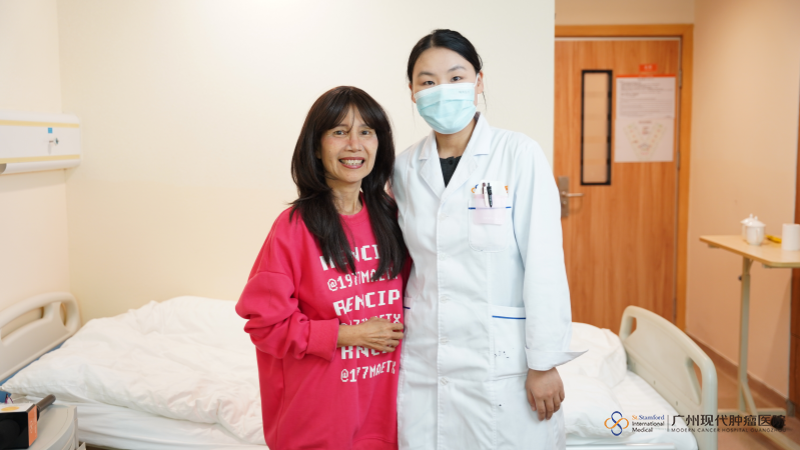
A photo of me and my attending doctor
After two minimally invasive interventions, I felt like all of my symptoms had disappeared. After the CT scan, the doctor said, "Good news! The treatment effect is very obvious, and the tumor is hardly visible!" I was very happy and moved at that time. On the day of the ward rounds on March 2, 2024, the doctor informed me that my tumor markers had returned to normal, and the CT scan revealed that the tumor had completely disappeared! Just yesterday, I went shopping and walked 5 kilometers without feeling tired!
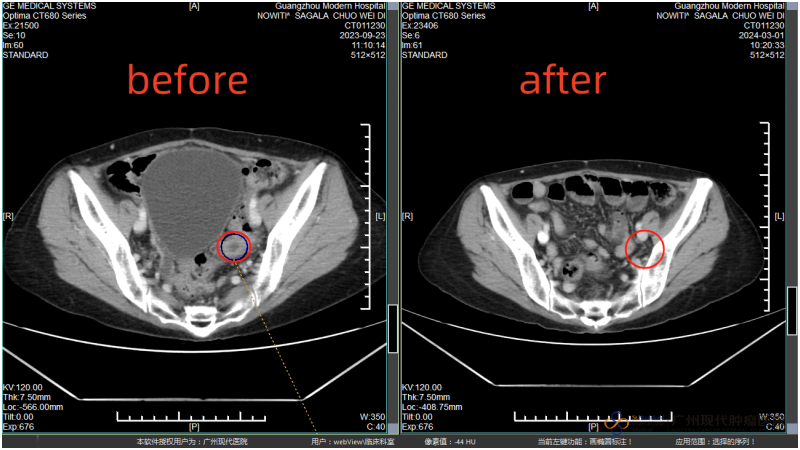
The right side shows the CT results after treatment. The tumor lesions in the ovary have completely disappeared.
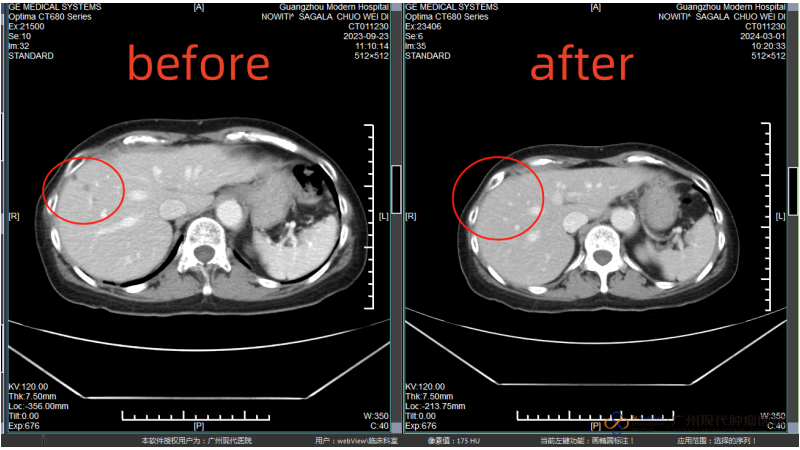
The right side shows the CT results after treatment. The tumor lesions in the liver have completely disappeared.
Facing cancer, we can cry, but we can’t give up
I sincerely appreciate my attending doctor, other medical staff, and the interpreter. First, thanks to the reliable treatment techniques, and second, their enthusiasm, care, and encouragement, which gave me great strength. I want to tell other cancer patients: "When facing cancer, we may cry, but we must not give up." We must persevere and seek high-quality treatment techniques. Minimally invasive interventional therapy and other minimally invasive techniques can reduce pain, while also shortening treatment time with better efficacy which can maintain our quality of life and improve survival rates.
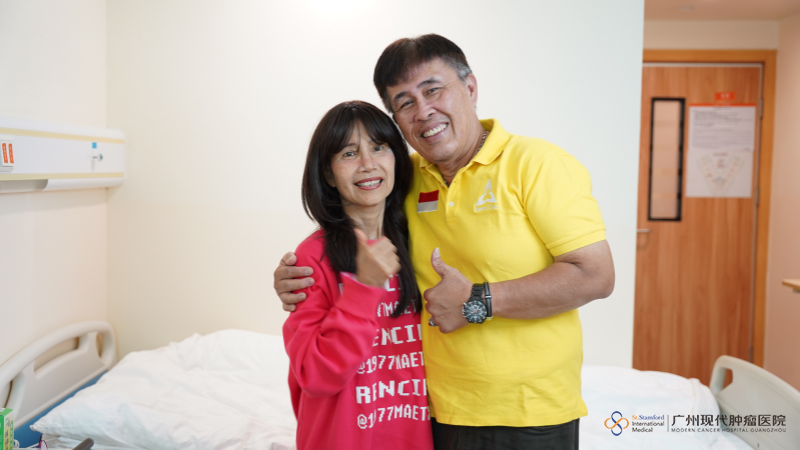
Thanks my husband for staying with me during the treatment






